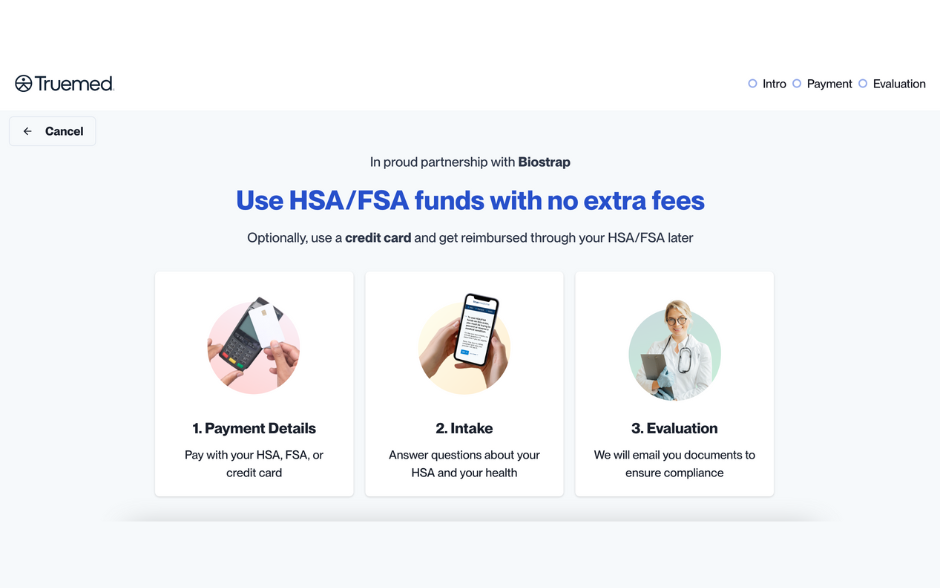Do you know your sleeping heart rate, in other words nocturnal heart rate? If not, it might be time to find out. Several clinical studies have shown that resting heart rate is a key indicator of health, wellness, and longevity. Monitoring changes in your resting heart rate over time can also provide meaningful insight into changes in health.
Understanding your nocturnal heart rate is also important for determining your target heart rate zones, which can guide you to peak athletic performance. Here’s everything you need to know about your nocturnal heart rate — and how to improve it.
What Is Resting Heart Rate?
Heart rate is defined as the number of contractions of the heart, expressed in beats per minute (bpm). Heart rate can be measured during activity (active heart rate), but is most often clinically assessed at rest in the absence of extraneous stress and other factors.
Resting heart rate is utilized to evaluate an individual’s cardiovascular health and function. While most healthy adults have a resting heart rate between 60 and 80 bpm, factors such as fitness level, body composition, room temperature, body position, stress, and use of certain medications can affect heart rate.
‘Low’ Resting Heart Rate
A resting heart rate below 60 bpm is considered “bradycardia”, but may be common in individuals with good cardiovascular fitness or individuals taking certain medications. According to Dr. Jason Wasfy at Massachusetts General Hospital Heart Center. “In certain cases, a lower resting heart rate can mean a higher degree of physical fitness, which is associated with reduced rates of cardiac events like heart attacks.” In the case of individuals with good cardiovascular fitness, the stroke volume of the left ventricle is increased, meaning the heart rate may decrease while still maintaining adequate cardiac output.
In other cases, having a low resting heart rate could be indicative of an underlying health concern. According to the American Heart Association, bradycardia can lead to symptoms including lightheadedness, weakness, confusion, fatigue, and diminished exercise performance. Symptomatic bradycardia may indicate that an individual should seek immediate medical advice.
‘High’ Resting Heart Rate
A resting heart rate greater than 100 bpm is considered “tachycardia”, which is often correlated with increased risk of cardiovascular diseases due to chronic additional work placed on the heart. According to Healthline, tachycardia can be caused by anxiety, fatigue, electrolyte imbalance, overconsumption of alcohol or caffeine, drug use, or other underlying medical conditions.
The negative effects of a high resting heart rate were demonstrated in a study conducted by Copenhagen University Hospital. This study found a strong correlation between patients with higher resting heart rates (RHR) and risk of death, specifically a 10% increase risk of mortality for every additional 10 bpm.
Nocturnal Heart Rate
Unlike the traditional resting heart rate values obtained in normal clinical practice, nocturnal heart rate is obtained during sleep. It is normal for nocturnal heart rate values to be slightly lower than waking resting heart rate due to minimal factors impacting the value, and therefore represents a more valuable tool for trending over time to gain valuable insight into changes in your health and performance.
Your Heart Rate During Sleep and Sleep Apnea
Obstructive Sleep Apnea (OSA) is one of the most prevalent sleep disorders in the US with greater than 25 million confirmed cases and research suggesting a high prevalence of undiagnosed patients. During an apneic event, individuals experience a partial or complete collapse of their airway depriving them of oxygen for several seconds. In addition to sleep disturbances, this can lead to an acute change in heart rate and oxygen saturation.
So what are some indications that you may have OSA? Kathleen Davis states that loud snoring, accompanied by restless sleep and daytime fatigue, could indicate the presence of sleep apnea.
According to Medline Plus, this sleep disorder can cause pauses in breathing that can last from a few seconds to several minutes, with a transition back to normal breathing marked by a gasp, snort or choke, which may startle the sleeper (and often their partner awake). These sleep disruptions have been credited for symptoms of daytime tiredness, even after a full night’s sleep, in patients with sleep apnea.
Fatigue and frustration aside, sleep apnea also affects nocturnal heart rate. “When you stop breathing while you sleep, your heart rate drops, and then your involuntary reflexes make you startle into a micro-arousal, which causes your heart rate to accelerate quickly,” says The National Sleep Foundation. In addition to elevated blood pressure, this rapid decrease and increase in heart rate may lead to an irregular heart rhythm, or cardiac arrhythmia.
Irregular Heart Rhythms and Risks
While irregular heartbeats can be caused by a variety of factors, more studies are revealing the direct relationship between cardiac arrhythmias and sleep disorders such as OSA. One of the most common types of arrhythmia, atrial fibrillation (AF) is marked by irregular contractions of the upper heart chambers.
According to a clinical study conducted at the University of Ottawa, researchers found that OSA may increase the risk of atrial fibrillation with secondary symptoms including palpitations, lightheadedness, weakness, fatigue, shortness of breath, and chest pain. Atrial fibrillation is also associated with stroke, heart failure, and other cardiovascular conditions.
Measuring Heart Rate
Maintaining a healthy cardiorespiratory system is important – but what are some ways you can measure your resting and nocturnal heart rate?
This can be accomplished with the old fashioned method of measuring your pulse rate with your fingertips placed on your wrist – just make sure you’ve had ample time to rest after a stressful event or exercise, and under controlled conditions. While this is cost effective (free) and can be done anywhere, there may be issues associated with reliability and these measurements cannot feasibly be performed during sleep.
Electrocardiograms (ECG) are another method that are commonly used in clinical practice to measure electrical conductivity of the heart to measure its rate of contractions. While this is a relatively quick and very precise method for measuring heart rate and other important aspects of cardiovascular function, the most reliable form (12-lead ECG) is typically not available for the general population to track consistently over time.
Which brings us to perhaps the best solution for measuring resting and nocturnal heart rate in terms of cost, reliability, and availability- wearable technology. These cost-effective technologies unlock the ability for all to consistently track and monitor their heart rate over time to gain valuable insight into cardiovascular function. However, it is important that consumers seek a wearable technology that has proven accuracy compared to the gold standard ECG devices.
Improving Your Heart Rate
When it comes to improving your heart rate, maintaining a healthy body composition and regularly engaging in physical activity are key. According to Harvard Health Publishing, exercising within target heart rate zones can help to strengthen the heart and improve aerobic capacity. To safely and effectively train with heart rate zones, it is encouraged that individuals first seek clearance from their healthcare provider, and consider training under the guidance of a qualified fitness professional.
Improve Your Nocturnal Heart Rate, Reduce Your Risks
Nocturnal heart rate is an important metric that helps quantify the efficiency of your cardiovascular system. Tracking your nocturnal heart rate over time and gaining knowledge of how certain behaviors are impacting trends can help develop an individualized lifestyle plan on the journey to optimal health and life performance.
Additionally, tracking heart rate may provide valuable insight or early detection of health conditions such as sleep disorders that can not impact your sleep quality, but may facilitate or exacerbate other health-related issues.
Maintaining positive habits such as consistently engaging in physical activity may help strengthen the body’s most vital muscle- the heart.



